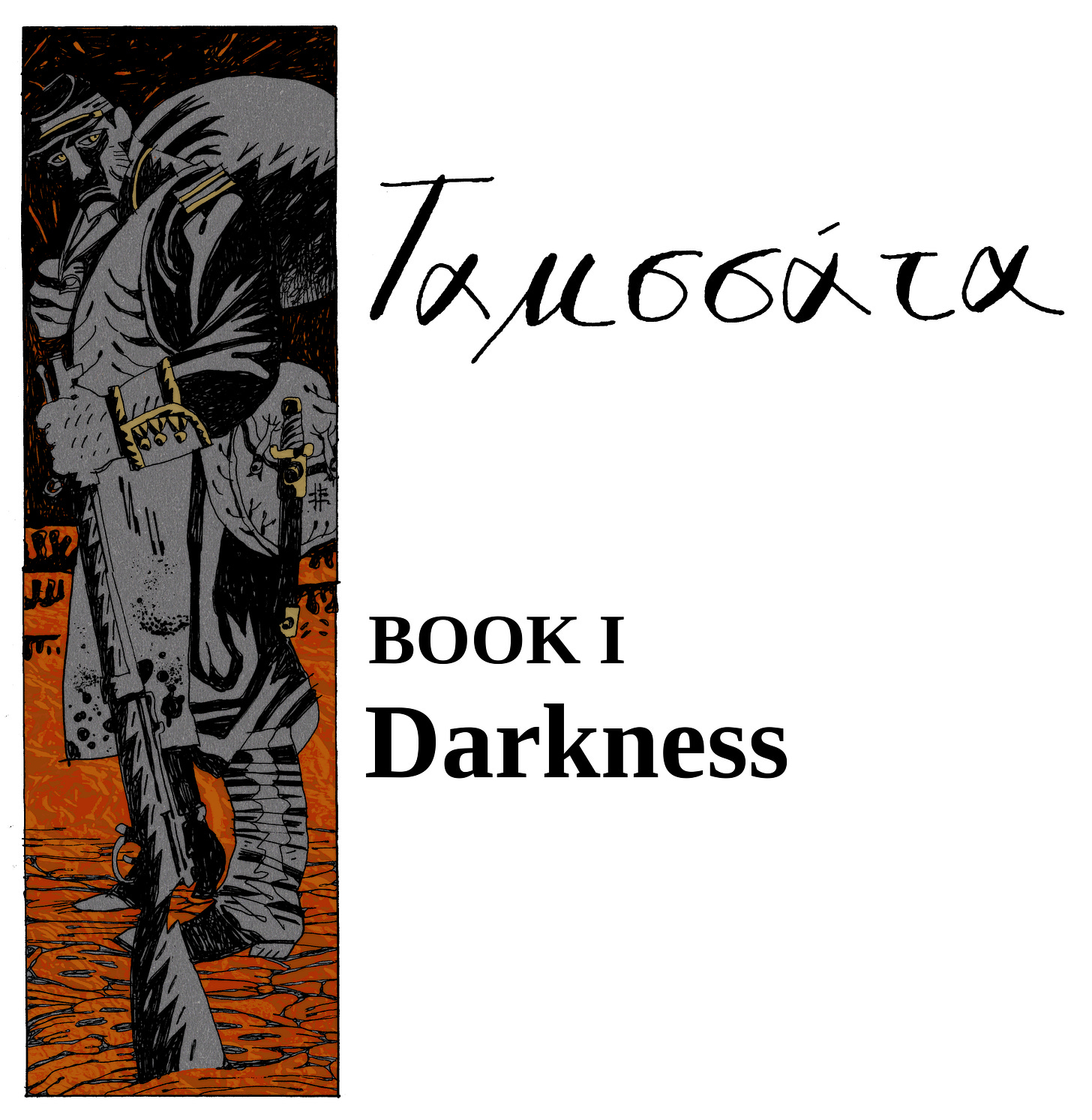Round the Meridian
October Newsletter
So there I was, teeth gritted, knuckles white on the wheel, grinding down Vasil Kanchev on a flat tire at eight kilometers per hour. The garage was close. I could see it. I could leap the traffic meridian and be there in less than a minute. To do that, though, I would have to abandon Pavlina’s Nissan Leaf, the car I had lamed. On I ground, because I had promised myself I would and because there is no way to make a goddam left turn on Angel Kanchev.
It was my lack of experience and trusting nature that had put me in these straights. When the “Tire Pressure Low” indicator came on on Pavlina’s dashboard, I plugged a gas-station air pump into one tire after another and crouched there while it hissed, as if I knew what I was doing. The indicator stayed on.
During my next attempt, I experimented with waiting longer. I even considered the numbers displayed on the air pump’s gauge. 28. Remarkable. Would that be in PSI? Bars? The guide on the inside of the frame of the Leaf’s driver’s side door said 36PSI/2.5BAR, so perhaps I should aim for number 36. It sure was taking a long time to pump the tire up to that level.
A panicked gas station attendant stopped me before I’d gotten must past 32. Staying I’d over-inflated the tire, he depressed the head of the valve with the metal tip of the air pump. I give reader the licence to judge who was the greater fool in this situation. And now that you’ve had a moment to consider, it won’t surprise you to learn that by next morning, the tire was flat.
When Pavlina pulled out of our driveway on her way to work, the front tire on the passenger side of the Leaf made a noise like a wet tarpaulin dragged across gravel. She turned right back around and stowed the car, which she’d deal with later.
By God, I vowed, she would not.
“I am a good husband,” I said as I forced the car another meter down Angel Kanchev. “This is the highlight of my day!”
To my left, the barrier rail crawled by. To my right: crying toddlers in the arms of their parents, on the way to school. I fought the shimmy in the wheel, my ears filled with the despairing flap of flaccid rubber. I imagined the state of the rim as the traffic cavorted around me, honking. Finally, I reached the end of the street, which was an 18-way double intersection.
Like a pilot in a squall, I set my jaw and tightened my grip. There was no light to aid me and the traffic was going out. My only chance was a U-turn. So I hove to, and rounded the meridian.
The Nissan Leaf gradually flopped back up Vasil Kanchev, to where a provident parking space waited in front of the garage. The physical trial was finished, but now began the economic and psychological examinations. I only had enough money for one new (used) tire, and the mechanic didn’t want to make only one replacement.
“Can you walk with only one shoe?” he asked.
While I meditated upon this koan, he embarked on his own exploration of patience and compassion, working down a list of suggestions from replacing all four tires to just the front two to just the flat one, in exchange for my promise to have both front tires replaced as soon as possible.
In the time it took me to walk to the ATM and back, the job was done. That evening, Pavlina said, “Oh, good. I don’t have to do it,” and I felt like an admiral.
In October I began serializing Wealthgiver. As of the time of this writing, we’re up to five chapters, with another twelve edited and ready, a buffer that stretches to late January. Two thousand words a week seems like a pace I can keep to. Knock on wood, readers should be able to get a new chapter every week until the book ends in June.
Paying readers. The first seven chapters will be available to the public, but in two weeks (the 21st of November), I’ll erect my pay-wall. My goal until then is to attract as many free subscribers as possible. Please help me with that; subscribe on Substack or Patreon. If you enjoy Wealthgiver, please recommend it. You can even buy a gift subscription for a friend.
In other news, Upstream Reviews released my expanded review of Space Pirates of Andromeda, which you can read here. I’m rather proud of it, and of course I had a blast reading the book itself. I do wish someone would comment, though. I want to know what other people think. Go read the review, read the book, and tell me what you think.
And I read some books I read this month. (note: the links are Amazon affiliate links)
Invading the System by Inadvisably Compelled
I have a weakness for Progression Fantasy, where the protagonist gains skills and levels up like a video game character. Take the gamification too far, though, and you have a LitRPG. Compelled gets that.
In this book, post-singularity Earth was invaded by the System and turned into a deadly game of wizards killing monsters (and civilians and each other) in return for power. Survivors in space used biotechnology to fight back, and managed to drive the perverse incentive structure off Earth. But just as the last portal to the other System worlds was closing, one post-human super-soldier slips through. He calls himself Cato, and it is his mission to pursue the System to its source and annihilate it. A fun, fun book.
A Man at Arms by Steven Pressfield
I was greatly inspired and instructed by Pressfield’s War of Art. I got some good use out of The Story Grid, too, but here we see Pressfield’s system fail to deliver transcendence. In a story about a Jewish boy and a dishonored Greek mercenary dodging a cruel Roman legionary to help a girl deliver Paul’s Epistle to the Corinthians, I didn’t feel much. The story painted one numbered step after the next and rushed me into the end.
There were a few moments of grace, though. The novel’s worth reading for the line “I am all stings.”
Rich Man’s Sky by Will McCarthy
I usually give up on bad books quickly and don’t bother to write reviews of them. This book, however, wasted enough of my time that I feel it my duty to warn you off. It was very disappointing.
The premise is excellent, but I suspect McCarthy tried to stretch the first act of his story into the first novel of a trilogy. We end up with a book that is mostly filler: digressions, characters who have nothing to add, meaningless sex, and a protagonist who keeps not getting it. Because the author doesn’t allow her to see what’s in front of her face, she comes off as clueless and bitchy. Corcoran’s Aristillus series is much better, and so is McCarthy’s earlier work.
Storm Between the Stars by Karl K. Gallagher
I’m getting used to Gallagher’s style, which relies on the reader to figure out the characters’ feelings from their words and deeds. At first, it feels like you’re reading an after action report, but the effort it takes to notice them makes the emotions more serious. My heart really did speed up as I watched the oppressive Censoriate bear down on our plucky space-traders. Will they make it out with lives and freedom intact?





